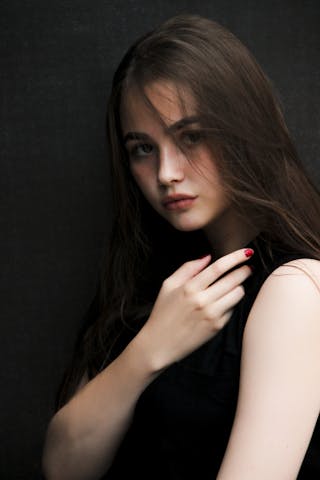Is Wonder Woman Gay or Bisexual? The Debate Surrounding the New Poster
Have you seen the latest buzz surrounding the new Wonder Woman poster? There's been a lot of speculation and discussion swirling around, and it's definitely got people talking. If you want to stay in the loop and see what everyone's saying, head over to Devilish Desire for all the juicy details and reviews. You won't want to miss out on this hot topic!
The release of a new Wonder Woman poster has sparked a debate among fans, with many speculating about the superhero's sexual orientation. The poster, which features Wonder Woman in a powerful and confident pose, has led some to question whether the character is gay or bisexual.
If you're tired of paying for online dating, check out these free online dating sites with no credit card required and give it a try today!
The speculation began when the poster was released on social media, with many fans expressing their support for the idea of Wonder Woman being a member of the LGBTQ+ community. Some pointed to the character's history in the comic books, where she has been depicted in relationships with both men and women, as evidence of her potential sexual orientation.
If you're tired of traditional dating sites, give Huggle a try and discover the magic of this user-friendly dating site that's changing the way we connect here.
The Representation of LGBTQ+ Characters in Pop Culture
Explore a unique collection of vore sex games on this website.
The debate surrounding Wonder Woman's sexual orientation reflects a broader conversation about the representation of LGBTQ+ characters in pop culture. In recent years, there has been a growing push for more diverse and inclusive representation in media, including the inclusion of LGBTQ+ characters in popular franchises.
Many fans have praised the idea of Wonder Woman being portrayed as a member of the LGBTQ+ community, noting the significance of having a strong and iconic superhero represent the experiences of LGBTQ+ individuals. They argue that such representation can help to normalize LGBTQ+ identities and provide much-needed visibility for the community.
Critics, however, have raised concerns about the potential for LGBTQ+ representation to be tokenized or exploited for the sake of marketing. They argue that simply hinting at a character's sexual orientation without fully exploring it in the story can be a form of "queerbaiting," a practice in which LGBTQ+ representation is used to attract a diverse audience without delivering on meaningful representation.
The Impact of LGBTQ+ Representation on Dating and Relationships
The representation of LGBTQ+ characters in popular media can have a significant impact on the dating and relationships of LGBTQ+ individuals. Seeing characters who reflect their own experiences can provide validation and a sense of belonging, helping to combat feelings of isolation and invisibility.
For those who identify as gay or bisexual, the potential revelation of Wonder Woman's sexual orientation could be empowering and affirming. It could also lead to conversations about representation and identity within the LGBTQ+ community, fostering a greater sense of solidarity and understanding.
On the other hand, the debate surrounding Wonder Woman's sexual orientation may also prompt broader conversations about the importance of respectful and authentic representation. LGBTQ+ individuals may use this as an opportunity to advocate for more thoughtful and nuanced portrayals of their experiences in media, and to challenge stereotypes and tropes that can perpetuate harmful misconceptions.
The Role of Dating Apps in LGBTQ+ Representation
Dating apps can also play a role in shaping the representation of LGBTQ+ individuals in media. By creating inclusive and welcoming spaces for LGBTQ+ users, dating apps can help to reinforce the importance of diverse representation and provide opportunities for LGBTQ+ individuals to connect with others who share their experiences.
Dating apps can also serve as platforms for conversations about LGBTQ+ representation in media and popular culture. Users may discuss the portrayal of LGBTQ+ characters in movies, TV shows, and comic books, and share their thoughts on the potential impact of representation on their own lives and relationships.
In conclusion, the debate surrounding Wonder Woman's sexual orientation reflects a larger conversation about LGBTQ+ representation in media and popular culture. For LGBTQ+ individuals, the potential for a beloved superhero to be portrayed as a member of the community could be empowering and affirming. It also highlights the ongoing need for thoughtful and authentic representation of LGBTQ+ experiences in all forms of media. As dating app users, it's important to engage in these conversations and advocate for more inclusive and respectful representation of LGBTQ+ individuals in popular culture.
- https://top-local-dating-website.niklasbelenius.com/posts/my-best-sex-ever-was-with-an-older-woman/
- https://free-hookup-apps.hankwilliamsmothersbest.com/posts/does-your-dating-app-want-you-to-stay-single/
- https://casual-encounters-site.wsmchicago.com/posts/festival-sex/
- https://online-dating.themountaintopplay.com/posts/pandemic-diary-a-newly-single-woman-navigating-a-breakup/
- https://online-dating-website.sonya-renee.com/posts/hot-sex-hot-sex-stories/
- https://chat.themountaintopplay.com/posts/5-positions-that-prove-clothes-make-sex-hotter/
- https://free-local-encounters-site.theimmigrant-lefilm.com/posts/hot-sex-hot-sex-stories/
- https://free-casual-dating-websites.wsmchicago.com/posts/what-is-an-orgy-really-like/
- https://discreet-hookup-platforms.gatective.com/posts/gynesexuality-what-does-it-mean-to-be-gynesexual/
- https://top-meetup-app.sonya-renee.com/posts/kristen-stewart-on-the-huge-responsibility-she-felt-to-define-her-sexuality/
- https://online-local-encounters-app.sonya-renee.com/posts/my-best-sex-ever-was-with-a-love-islander/
- https://casual-encounters-app.patternismovement.com/posts/best-genderaffirming-sex-toys/
- https://online-meetup-app.prettygirlsmakegraves.com/posts/lesbian-erotica16-best-lesbian-and-samesex-erotic-novels/
- https://online-local-dating-platforms.prettygirlsmakegraves.com/posts/how-often-do-couples-who-live-together-have-sex/
